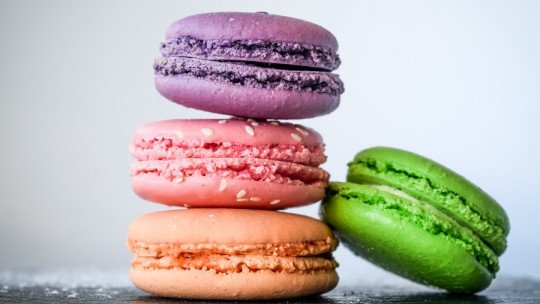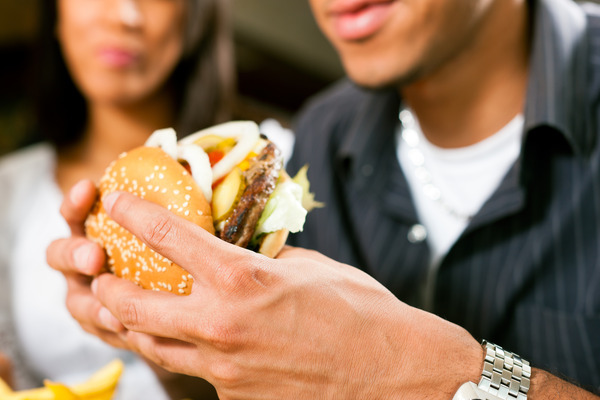There is nothing wrong with satisfying a sweet craving, despite the fact that for a long time the idea has been promulgated that it is necessary to eradicate all traces of sugar or flour in our diets in order to live a healthy life. Unfortunately, the prevalence of some Eating Disorders (ED) – such as anorexia nervosa, bulimia and binge eating disorder – has increased in recent decades, and although there is no single cause to determine why EDs originate, it is known that food restriction is one of the conditions for supporting these pathologies. In other words: the more we restrict ourselves when we have a genuine desire for a food, the more likely we are to later consume it, even when we try to avoid it.
On the other hand, regardless of whether we suffer from an eating disorder or not, all people must evaluate the way in which we relate to food. It is more than respectable to want to reduce the consumption of sweet foods. However, in many cases controlling sweet cravings is a more complex purpose than it seems in theory. For this reason, in this article we will review some strategies to control sweet cravings from a non-restrictive approach
Sweet cravings: why do we have them?
The fact that all of us at some point in our lives have experienced recurring sweet cravings has an explanation. Desserts and other sweets, as we well know, are foods high in sugar. When we eat sugars, the nucleus accumbens is activated in our brain, a set of neurons involved in the functioning of our reward circuit.
Broadly speaking, the reward system is a network of structures whose ultimate goal is to ensure that we repeat those behaviors that are necessary for our survival. It is an evolutionary mechanism that enables our adaptation to the environment. The way in which the brain encourages us to more frequently carry out a behavior that is useful for survival—such as eating, drinking, or having sexual relations—is the production of pleasurable sensations when we perform these actions. The main neurotransmitter involved in obtaining pleasure is dopamine In this way, thanks to pleasure, we reinforce those potentially adaptive behaviors.

However, there are other types of behaviors that, despite not being strictly necessary to survive, are conceived by the brain. like were indispensable. Addictions are based under this neurobiological substrate, since drugs activate the reward system just like a hypernutritious meal. Sweet foods, abundant in sugar, also activate this mechanism. In other words, we are “programmed” on a biological level to be susceptible to sweet cravings. We have all eaten a delicious dessert on several occasions that has been extremely rewarding and, by repeating that behavior throughout our history – we now know, due to the activation of the reward system – it has ended up being reinforced. Therefore, it is expected and valid to have cravings for sweets and trying to fight against it is a futile purpose.
However, what is within our reach is develop effective strategies to be more aware of our eating behavior These strategies allow us to determine on which occasions we want to heed the impulse to eat something sweet and on which other occasions we prefer to reserve the pleasure for another occasion. This is the perspective we hold when we refer to control sweet cravings: not to suppress them, but to be more aware and acquire the ability to decide if we want to act as a result of them.
The desire for sweets and emotional hunger
On the other hand, we can notice that sweet cravings do not appear at any time of the day or life. Although each body and each context is unique, in general terms, cravings tend to be more frequent during stressful periods of life, after situations of high emotional intensity; or at night, in the interim after dinner and before going to sleep, when the worries of tomorrow usually become present.
The specific behaviors we perform after noticing that we have a craving—for example, going straight to the refrigerator in search of ice cream or candy to eat from the jar—serve a function. As Paula José Quintero and Gabriela Rodríguez Rey indicate in the book Eat consciously. Skills to deal with eating disorders, “there are no meaningless behaviors, they all fulfill a function.” Every behavior has an antecedent, which often acts as a “trigger” for the need to look for sugary food. This gives an idea of how to control sweet cravings.
The antecedent to the behavior of looking for a sweet can be, for example, an argument with one’s partner Sugars and food in general give us pleasure, and people have become accustomed to using food not only to meet our basic needs (what we would call organic or biological hunger), but also to reduce our most intense emotions, that is, to satisfy emotional hunger.
How to control sweet cravings?
First of all, in order to decide what we do when we experience a craving for sweets, first of all it is essential to realize that we are feeling a craving. Sometimes, we behave so automatically that we go directly to action, to the search for food, without first allowing ourselves to feel the craving.
And yes, we talk about feel the craving and not to ignore it or fight it. It is crucial to cultivate a compassionate attitude toward ourselves when we crave something sweet. We have been taught to demonize any type of behavior that could potentially lead us, ultimately, to being overweight, using “beauty” and “health” as pretexts to encourage restrictive habits And yet, it is so human to crave sweets that the best strategy to start from is to radically accept the physical sensations that accompany the craving—salivation, a certain languor in the stomach—and allow yourself to experience them openly.
Regaining control of your diet: three crucial questions
Once this is done, we can ask ourselves the following questions: What do I want to eat? Why do I want to do it? What consequences will eating that food have in the short and medium term?
About what do I want to eat, it’s about identifying what our craving is. Sometimes, when we want a heavy food or food of low nutritional quality, we make the mistake of looking for an alternative with better nutritional quality but that is very far from what we want. Suppose we want a cinnamon bun and, on the other hand, we eat an orange. Since we’re still craving the cinnamon bun, we go up a notch and eat a cereal bar almost without thinking about it. It didn’t satisfy us either. For that reason, we ended up eating not only an orange and a cereal bar, but also (finally!) the cinnamon bun. The problem does not lie in eating the three foods, much less succumbing to the desire for the cinnamon bun (although it will depend on each person, probably the best strategy would have been to indulge). The real problem is being unable to decide what we want to eat and acting in an uncontrolled way
Note that we do not use the term healthy, since this will depend on the person’s objectives, values and conditions. In relation to this, the second question is: Why do I want to eat?. Am I organically hungry, or emotionally hungry? Emotional hunger is characterized by being rather sudden, and usually appears even after having eaten a satisfying and nutritious dish. Perhaps, we may notice that our craving responds more to this type of hunger. However, it is also appropriate to open the following topic: on certain occasions, It is also okay to eat out of emotional hunger and not out of organic hunger.. Maybe after breaking up with our partner we feel like having ice cream, because we need it, and it’s okay to give ourselves permission to do so. We’ve said it before: restricting ourselves will only lead us to a worse place.
Finally, it is important to ask What consequences will it bring in the short term and medium-long term? the intake of this food. In the short—or immediate—term, eating something sweet undoubtedly generates high levels of pleasure. Now: in the medium or long term, when that sensation has subsided, what effects, sensations, thoughts, emotions could it bring to me? Is the decision to eat something sweet at this very moment aligned with my values, with the kind of person I want to become?
If I still decide to move forward and follow the impulse to eat something sweet, that’s perfect. It is a thoughtful, conscious and healthy decision Being aware of our behaviors, without a doubt, brings us closer to the pole of health. In addition, it places us in a place of control of the situation. To avoid eating more than I need—important: “what I need” is not something fixed or medically determinable, but rather varies depending on circumstances—it is helpful to notice the textures, colors, flavors, smells, even sounds they have. food when we eat. All this is, in short, what is called conscious eating or mindful.
Asking these types of questions under no circumstances has the objective of convincing us not to “eat” that food, but rather to regain control and acquire the ability to decide, for ourselves, what to do with the craving and not have it decide for us.









